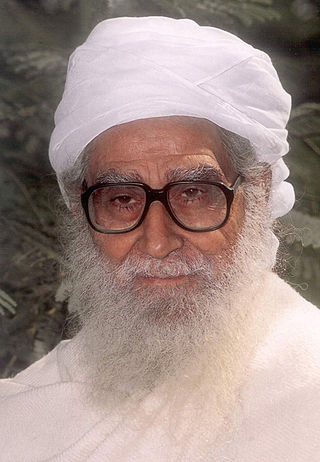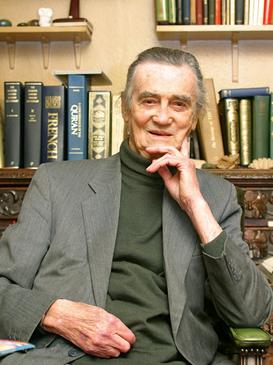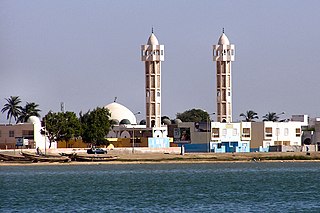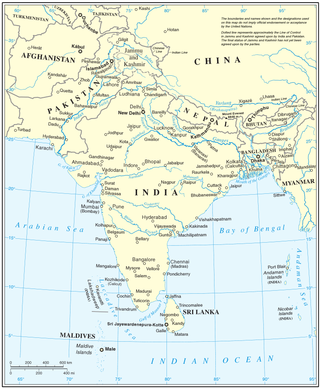Related Research Articles

Iconoclasm is the social belief in the importance of the destruction of icons and other images or monuments, most frequently for religious or political reasons. People who engage in or support iconoclasm are called iconoclasts, a term that has come to be figuratively applied to any individual who challenges "cherished beliefs or venerated institutions on the grounds that they are erroneous or pernicious."

Muslims are people who adhere to Islam, a monotheistic religion belonging to the Abrahamic tradition. They consider the Quran, the foundational religious text of Islam, to be the verbatim word of the God of Abraham as it was revealed to Muhammad, the main Islamic prophet. The majority of Muslims also follow the teachings and practices of Muhammad (sunnah) as recorded in traditional accounts (hadith).

The Delhi Sultanate was an Islamic empire based in Delhi that stretched over large parts of the Indian subcontinent for 320 years (1206–1526). Following the invasion of South Asia by the Ghurid dynasty, five dynasties ruled over the Delhi Sultanate sequentially: the Mamluk dynasty (1206–1290), the Khalji dynasty (1290–1320), the Tughlaq dynasty (1320–1414), the Sayyid dynasty (1414–1451), and the Lodi dynasty (1451–1526). It covered large swaths of territory in modern-day India, Pakistan, and Bangladesh as well as some parts of southern Nepal.

The Bahmani Sultanate, or Deccan, was a Persianate Sunni Muslim Indian Kingdom located in the Deccan region. It was the first independent Muslim kingdom of the Deccan, and was known for its perpetual wars with its rival Vijayanagara, which would outlast the Sultanate.
Shuddhi is Sanskrit for purification. It is a term used to describe a Hindu religious movement aimed at the religious conversion of non-Hindus of Indian origin back to Hinduism.
The history of Hinduism covers a wide variety of related religious traditions native to the Indian subcontinent. It overlaps or coincides with the development of religion in the Indian subcontinent since the Iron Age, with some of its traditions tracing back to prehistoric religions such as those of the Bronze Age Indus Valley civilisation. It has thus been called the "oldest religion" in the world. Scholars regard Hinduism as a synthesis of various Indian cultures and traditions, with diverse roots and no single founder. This Hindu synthesis emerged after the Vedic period, between ca. 500–200 BCE and ca. 300 CE, in the period of the Second Urbanisation and the early classical period of Hinduism, when the Epics and the first Purānas were composed. It flourished in the medieval period, with the decline of Buddhism in India.
Islam and Jainism interacted with each other in the Indian subcontinent following the frequent Islamic incursions, and later the Islamic conquest and rule of the subcontinent from twelfth century AD onwards, when much of northwest, north and central India came under the rule of the Delhi Sultanate, and later the Moghuls of Turko-Mongol origin.

The Muslim conquests in the Indian subcontinent mainly took place from the 13th to 17th centuries. Earlier Muslim conquests include the invasions into what is now modern-day Pakistan and the Umayyad campaigns in India in eighth century and resistance of Rajputs to them.
The Kurdish calendar is a calendar used in the Kurdistan region of Iraq alongside the Islamic and Gregorian calendar.

Islam is an Abrahamic monotheistic religion centred primarily around the Quran, a religious text considered by Muslims to be the direct word of God as it was revealed to Muhammad, the main and final Islamic prophet. It is the world's second-largest religion behind Christianity, with its followers ranging between 1-1.8 billion globally, or around a quarter of the world's population. Due to the average younger age and higher fertility rate, Islam is the world's fastest growing major religious group, and is projected by Pew Research Center to be the world's largest religion by the end of the 21st century, surpassing Christianity. It teaches that God is merciful, all-powerful, and unique, and has guided humanity through various prophets, revealed scriptures, and natural signs, with the Quran serving as the final and universal revelation and Muhammad serving as the "Seal of the Prophets". The teachings and practices of Muhammad documented in traditional collected accounts provide a secondary constitutional model for Muslims to follow after the Quran.
Islam is an Abrahamic religion founded in the Arabian Peninsula, while Sikhism is a monotheistic religion founded in the Punjab region of the Indian subcontinent. Islam means 'submission to God'. The word Sikh is derived from a word meaning 'disciple', or one who learns.

Wahiduddin Khan, known with the honorific "Maulana", was an Indian Islamic scholar and peace activist and author known for having written a commentary on the Quran and having translated it into contemporary English. He was listed in "the 500 Most Influential Muslims" of the world. He was also the founder of the Centre for Peace and Spirituality (CPS). In 1993, he asked the Muslims to relinquish claims over Babri Masjid site. Khan had also embarked on a peace march through Maharashtra along with Sushil Kumar and Chidanand Saraswati post the demolition of the Babri Masjid. Khan wrote over 200 books on several aspects of Islam and established the Centre for Peace and Spirituality to promote interfaith dialogue.

Charles le Gai Eaton was a British diplomat, writer, historian, and Sufi Islamic scholar.

The caste system in India is the paradigmatic ethnographic example of classification of castes. It has its origins in ancient India, and was transformed by various ruling elites in medieval, early-modern, and modern India, especially the Mughal Empire and the British Raj. It is today the basis of affirmative action programmes in India as enforced through its constitution. The caste system consists of two different concepts, varna and jati, which may be regarded as different levels of analysis of this system.
Between the 9th and 14th centuries, the Muslim world developed many advanced economic concepts, techniques and usages. These ranged from areas of production, investment, finance, economic development, taxation, property use such as Hawala: an early informal value transfer system, Islamic trusts, known as waqf, systems of contract relied upon by merchants, a widely circulated common currency, cheques, promissory notes, early contracts, bills of exchange, and forms of commercial partnership such as mufawada.

Religion and beliefs occupy an important place in the daily life of the nation of Senegal. Many denominations of the religion of Islam are represented. Christians represents 3.3%. Other belief's are officially practiced by 0.1% of the population, particularly Serer, but members of other religions also often partake in traditional practices.
Jamia Al-Karam, is an Islamic institution Islamic Studies College located in Eaton in 30-acre premises. The Darul Uloom is managed by Muhammad Imdad Hussain Pirzada.

Islam is the second-largest religion in South Asia, with more than 600 million Muslims living there, forming about one-third of the region's population. History of Islam in South Asia started along the coastal regions of the Indian subcontinent and Sri Lanka, almost as soon as it started in the Arabian Peninsula, as the Arab traders brought it to South Asia. South Asia has the largest population of Muslims in the world, with about one-third of all Muslims living here. Islam is the dominant religion in half of the South Asian countries. It is the second largest religion in India and third largest in Sri Lanka and Nepal.
Haifaa Jawad is an Iraqi Muslim scholar and Honorary Senior Lecturer of theology and religion at the University of Birmingham.
The Need for a Sacred Science is a 1993 book by the Iranian philosopher Seyyed Hossein Nasr.
References
- ↑ Marshall et al. 1994, pp. 75–81.
- ↑ Eaton 1994, pp. 133.
- ↑ Galford 1995, pp. 146–148.